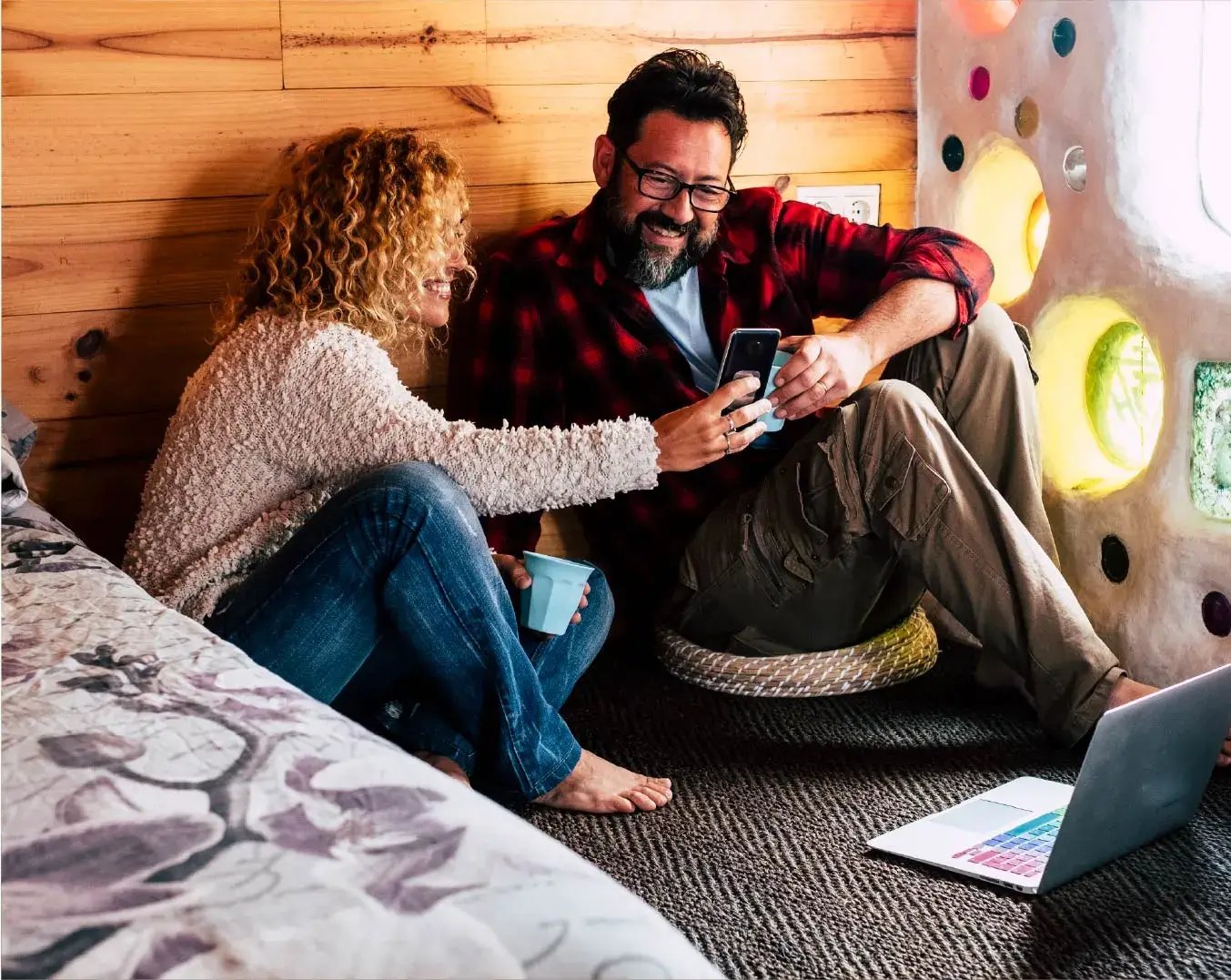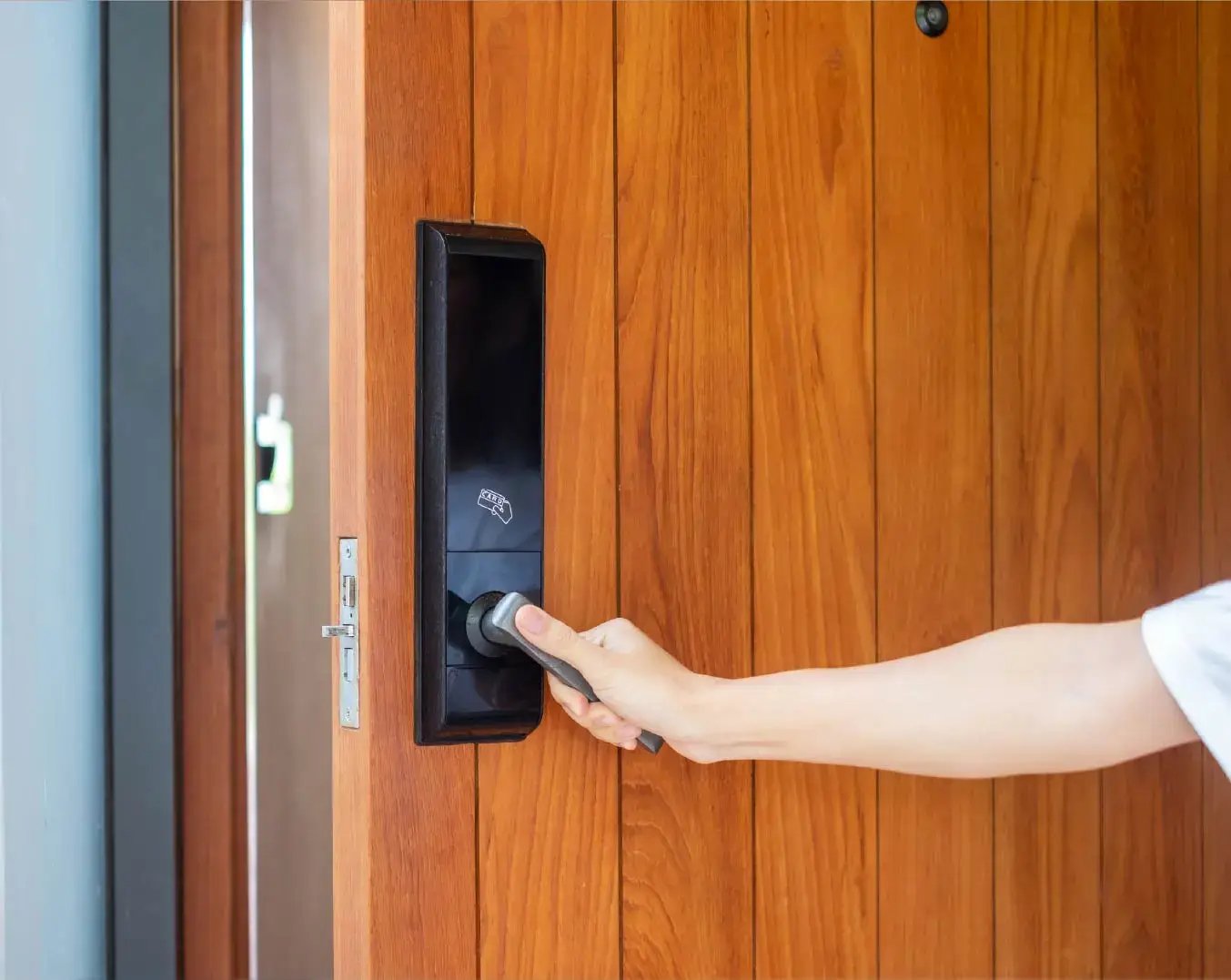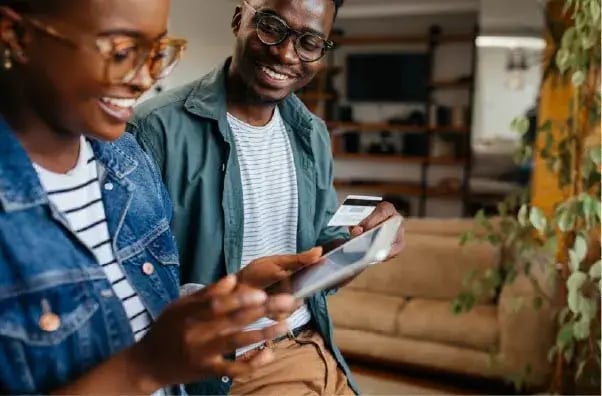Hotel security technology is something all hoteliers should be aware of. There are many ways to streamline hotel security systems – your goal is to offer the best protection to your guests. We’ll look at the latest technologies improving hotel security and how they can make a difference to the guest’s experience.
Table of contents
Technologies that are improving hotel security
Technology helps hotels to improve security in many ways. To learn more, check out the biggest technology trends in the hospitality industry.

Keyless entry
Convenience is a top priority for travellers, which is why the digital key plays a crucial role in modern hospitality, enhancing both guest experience and hotel operations.
Through keyless entry, hoteliers can create a seamless and secure guest experience from booking to checkout. This means that guests can bypass the front desk entirely and access their rooms using their smartphones, without the need to queue at the reception desk.
Keyless entry is one of the safest ways for hotels to improve security and ensure that unwanted people can't access the facilities. These systems are powered by electronic lock technology, letting guests access rooms via digital keys or through a mobile app.
The Digital Key from Mews offers enhanced security compared to traditional key cards:
- Digital keys mitigate the risks of lost, stolen or broken keycards, allowing hotels to track access and remotely deactivate them if needed. They are harder to duplicate and can be instantly deactivated if lost or stolen.
- The most secure digital keys are powered by Bluetooth, which means only someone close to the door can unlock it.
- Sharing is limited to the number of people specified in the reservation.
- Room access privileges are automatically updated based on real-time adjustment to the reservation in the PMS.
Cybersecurity
Hotel data breaches are one of the most potentially dangerous threats to your hotel’s reputation and the security of your guests. In recent years, we hear more and more stories about security breaches across all industries – including hospitality. According to a 2023 Trustwave report, “31% of hospitality organizations have reported a data breach in their company’s history, of which 89% have been affected more than once in a year.”
Despite the escalating threats, guests who share their personal information with hoteliers expect them to keep their data safe and sound. That said, limiting the volume of data collected is not a good way of meeting these expectations. Hospitality runs on data and will continue to do so because providing guests with the best possible experience requires access to data, which is utilized to book rooms, safely process payments and much more.
Hotels need to be able to safely handle sensitive information like credit card data, passport numbers, addresses and full names, making data encryption and secure payment processing a requisite to protect guest data from cyberattacks. With the advent of cloud-based property management systems like Mews, hotels no longer have physical copies of this data. Instead, data is continuously backed into the cloud and encrypted for safety. Hotels can also have information encrypted across multiple servers for added security.
User management
As hotels scale, more users are added to their systems which largely increases the risk of internal security breaches, e.g. via shared accounts, weak passwords and dormant users. And given that property management operations are dynamic, especially with high staff turnover, this is clearly a concern. In fact, Verizon reports that 74% of all breaches involve the “human element”, meaning human errors, privilege misuse, use of stolen credentials or social engineering.
That's why effective user management is critical to the success of chains and hotel groups where staff access the systems and enterprise environments from multiple devices across multiple locations.
User management refers to the effective management of users and accounts, granting them access to various systems and IT resources. It involves creating, configuring, and maintaining user profiles, permissions and authentication settings. In other words, it ensures that the right people have the right access within a system.
Some of the primary user management security measures are:
- Single Sign On (SSO) allows users to authenticate and access multiple systems or applications within a business environment using a single set of credentials.
- System for Cross-domain Identity Management (SCIM) user provisioning and deprovisioning is the process of automatically creating and removing user accounts within a system or enterprise environment, ensuring efficient onboarding and offboarding procedures critical to good security practices.
- Multi-Factor Authentication (MFA) requires users to provide multiple forms of identification, adding an extra layer of security beyond traditional credentials. These mitigate the risk of unauthorized access, reducing the impact of credential-based attacks. Even if login credentials are compromised, an attacker needs the secondary authentication factor for access.
Through the integration of SSO and SCIM, data integrity is fortified, ensuring the protection of your brand image by maintaining guest satisfaction and loyalty.
Machine learning and AI
Machine learning and AI can help hoteliers analyze behavior patterns and recognize suspicious behaviors. These most commonly include attempts to use fraudulent cards or make fraudulent reservations. It could also be an unauthorized person trying to enter the hotel using biometric access.
Biometric authentication
Biometric authentication, such as facial recognition or fingerprints, is another type of technology that is helping to improve hotel security. It ensures access to secured areas only to authorized personnel and guests. As it's very safe, some properties use it to grant access to hotel rooms as well.
The IoT
Have you ever heard of the Internet of Things (IoT)? It's a network of smart devices that collect and send data to deliver personalized service. For instance, sensors can communicate with lighting to help detect whether a room is occupied, turning the lights on or off.
Radar sensors can detect if a guest is experiencing life-threatening conditions in the room, which is especially important for those traveling alone.
Surveillance cameras
It's a good idea to install high-quality surveillance cameras throughout the hotel's facilities, from parking lots and hallways to public areas. They deter potential criminals and can help identify the culprit in case of incidents. Newer models also support facial recognition, low-light vision and color recognition analysis.
As with most modern technology, surveillance cameras have become more compact, allowing for better strategic placement.

Voice technology
If you need ideas for how to use voice technology, try in-room entertainment, control of security devices and voice-activated apps. It's a powerful tool for protecting guests who have a medical emergency, when it can be a life-saving ally.
RFID
RFID technology (radio-frequency identification) can track and manage inventory, preventing theft throughout the hotel, including the restaurant, bar, housekeeping and spa. Besides protecting you from losses, it helps identify anyone stealing from the hotel. By detecting suspicious people sooner rather than later, you're doing your best to protect your guests.
Mobile apps
Mobile apps have become indispensable for communication between hotel guests and staff. Any service request or a reported issue pops up as a notification on staff's smart devices and computers, ensuring a prompt reaction.
Virtual assistants
In the case of an emergency, a virtual assistant may not be the best bet. However, it's a fantastic choice for quickly responding to a service request or a problem. A virtual assistant can calm impatient guests by letting them know you're working on meeting their needs as soon as possible.
Integration with law enforcement
With proper security mechanisms, hotels can communicate with law enforcement quickly and easily. There are ways to integrate the security system with local law enforcement, helping to speed up response times. The faster your hotel can handle an emergency, the better it is for your reputation.
Conclusion
Technology is an essential aspect of modern hotel security, helping to keep guests, the property and everyone's data safe. You can create a safe environment by balancing security and privacy without infringing upon guests' rights. We covered the top trends to improve security like biometric authentication, sensors, keyless entry, machine learning and cloud-based systems.
Proper technology protects guests, whether by encrypting their information while booking a room or by keeping suspicious people from entering the facilities with the help of surveillance cameras. Be sure to take privacy and security seriously and do your best to create a safe environment.
Mews is best-in-class when it comes to PMS security. Here's how we keep your guest and property data secure, from personal information to payment details.

2026 Hospitality Industry Outlook
Download now
Table of contents
Hospitality hot takes straight to your inbox



.webp)